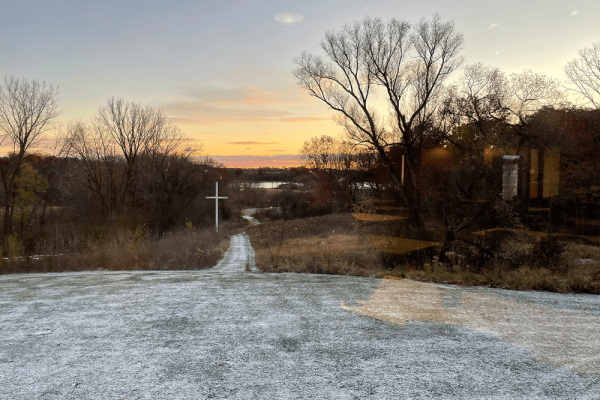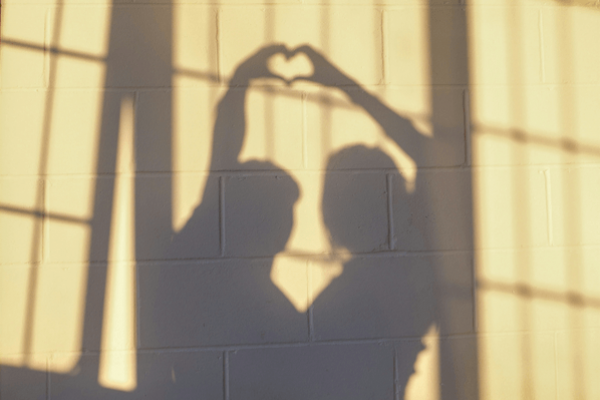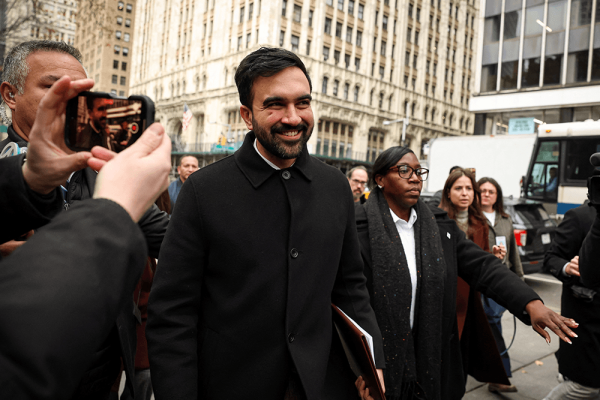“Here is the world. Beautiful and terrible things will happen. Don't be afraid.” —Frederick Buechner
It’s barely 2020, and we are already reeling, if not personally, collectively. Twitter feeds are full of Iran-related retweets of the president when just weeks ago we were talking about his impeachment.
There are protests happening all over the world, and we are seeing the disastrous results of climate change happening in real time. It’s terrifying, and it can feel like there isn’t hope to grab hold of anywhere around us. We are living the true reality of the above Buechner quote: Things are terrible and beautiful, and we can simply walk through life and choose to let go of our fear.
But how?
In this time, what does it mean to be human?
Literally speaking, we are Homo sapiens, Latin for “wise man,” who evolved over time to become what we are today, based on the way we think, act, and move in the world. On another level, we are beings called to practice sacred kinship with one another and all other beings, human and non-human alike, on this earth.
That means we are created to embrace and celebrate diversity in this world.
Some of us practice our humanity through religion; others don’t.
Some of us are poor and oppressed, while others benefit from systems of oppression.
Some of us are disabled, or queer, or Jewish, or immigrants, or of French descent, or Indigenous to a particular land, or descendants of settlers.
Some of us believe the earth is alive, speaking to us, and some don’t.
However we choose to be in the world, we do not live our lives solely for ourselves. In 2020, we are being reminded of that as governments challenge one another and we try to hold our leaders accountable to their actions and words. Can we embody grief and hope as we step further into 2020? Can we find rest as human beings in the midst of chaos?
Our Jewish kin practice Sabbath, or Shabbat, weekly. It is based on the idea of taking space to rest and recharge — an intentional pause in the busyness of life. To be fully human, to practice relationship with the Divine in a way that feeds us and fuels peace and wholeness in the world, rest is required.
In Anishinaabe culture, we see the winter months as a time to rest, to gather in, to tell stories. We follow the animals’ cues to harvest in the autumn and hibernate as the snow blankets the cold earth beneath us.
As humans, we are wired to stop and breathe, to pause, to pay attention to our own weariness. If we weren’t, we wouldn’t need Sabbath or hibernation. So, in 2020, we enter into the collective chaos of a hurting world and furious governments with the reminder that rest is a requirement.
I suggest three things to get us through this year:
- Name what’s hard. Whether it’s personal struggles or collective ones, we need to name the things that are taking up mental and spiritual space, causing trauma, or exacerbating already existing trauma. The things happening are really difficult, and we can say that to ourselves and those around us.
- Pick a practice. Maybe your ideas of rest are breathing exercises. Maybe it’s going outside with your dog, reading a favorite book, or having a date with a friend who knows you well. Maybe it’s disconnecting from Twitter for a while (something I’d recommend for everyone).
- Share the love. When we are rested and filled up to do our work in the world, we are better equipped to help others. Make your life a safe space where people who are exhausted can enter in. It may be something as simple as sending a card to someone you know is grieving. It may be creating online spaces for people to share their stories. If we hold space for ourselves, we hold space for each other, and we can collectively change things.
We live in a society that, as much as it has been built by dreams and visions, it has also been built on operated on genocide, abuse, and oppression. This will always be the reality. We get to be part of changing the future of that reality, and it doesn’t just take extra work to get there. It takes stopping to rest, too. It takes the full embrace of our humanity to get there.
Let’s go — together.
Got something to say about what you're reading? We value your feedback!







